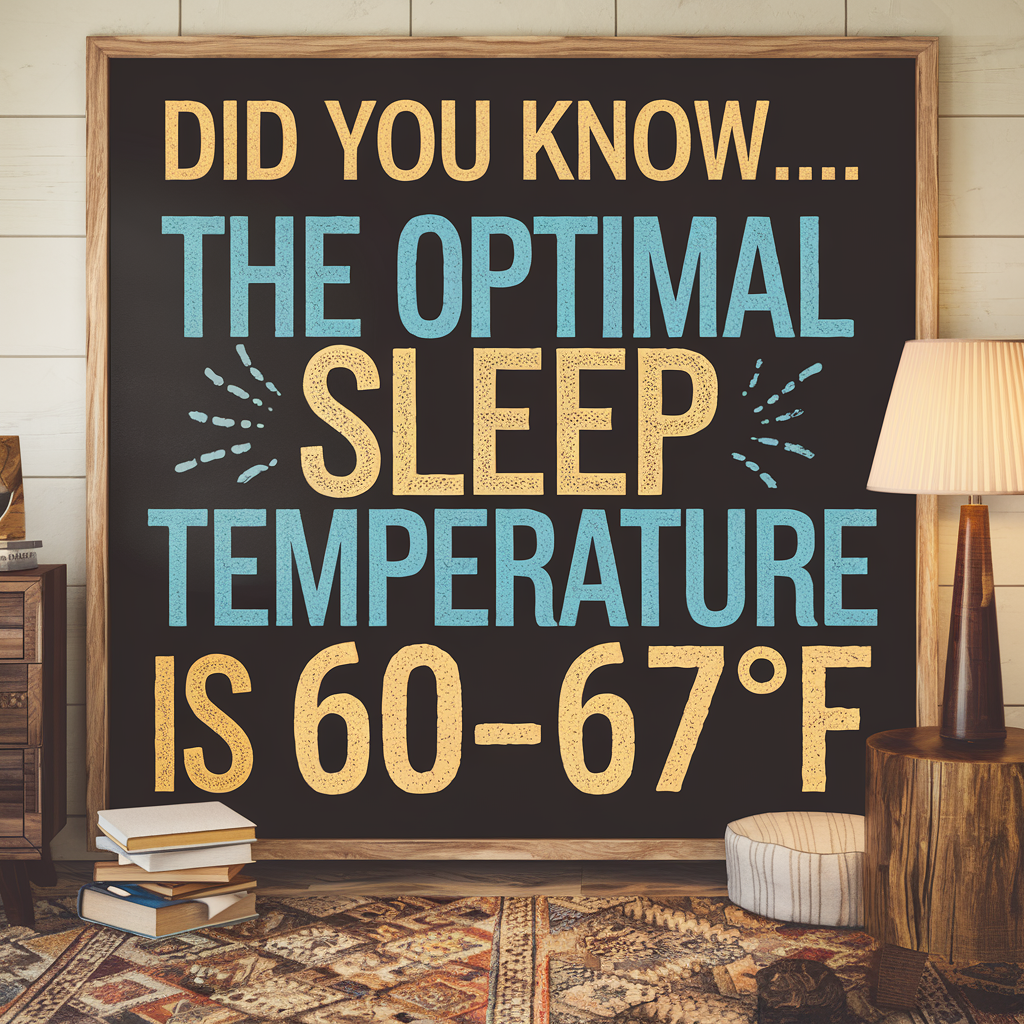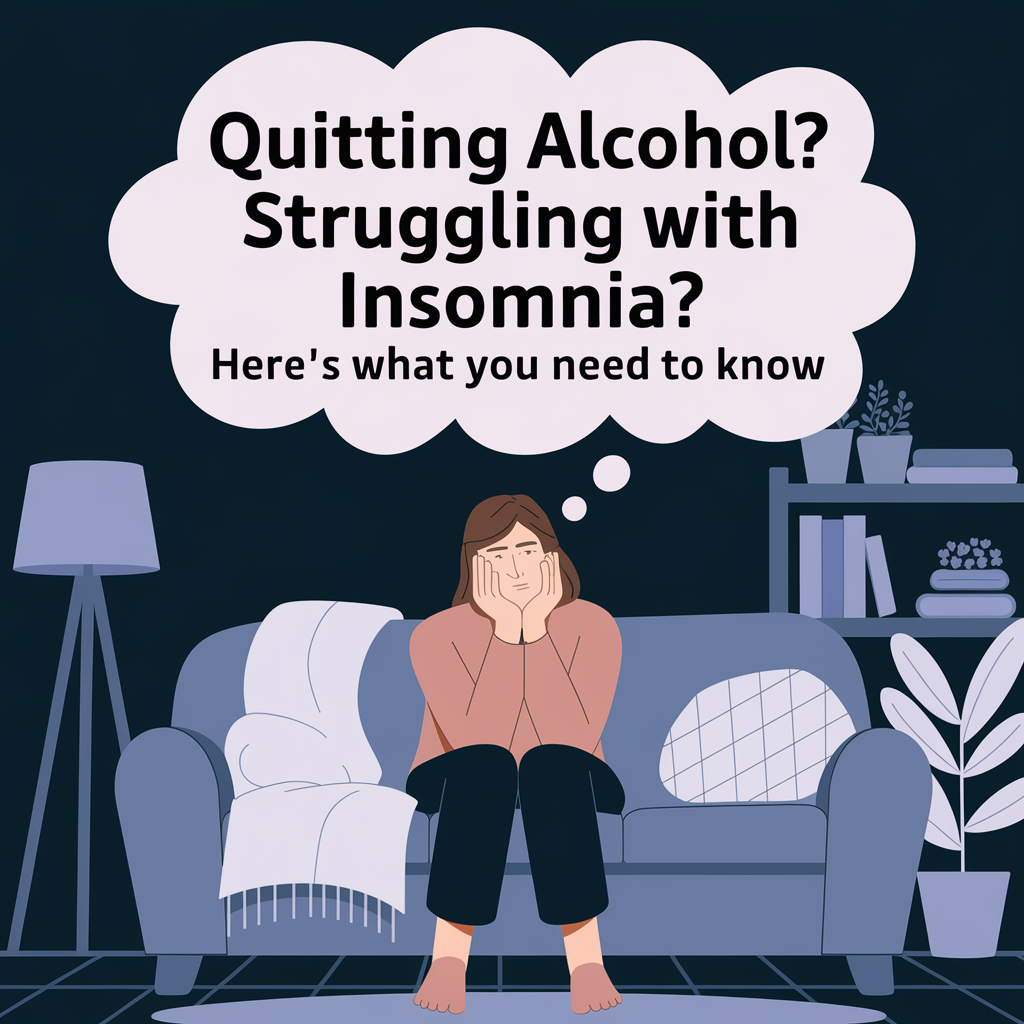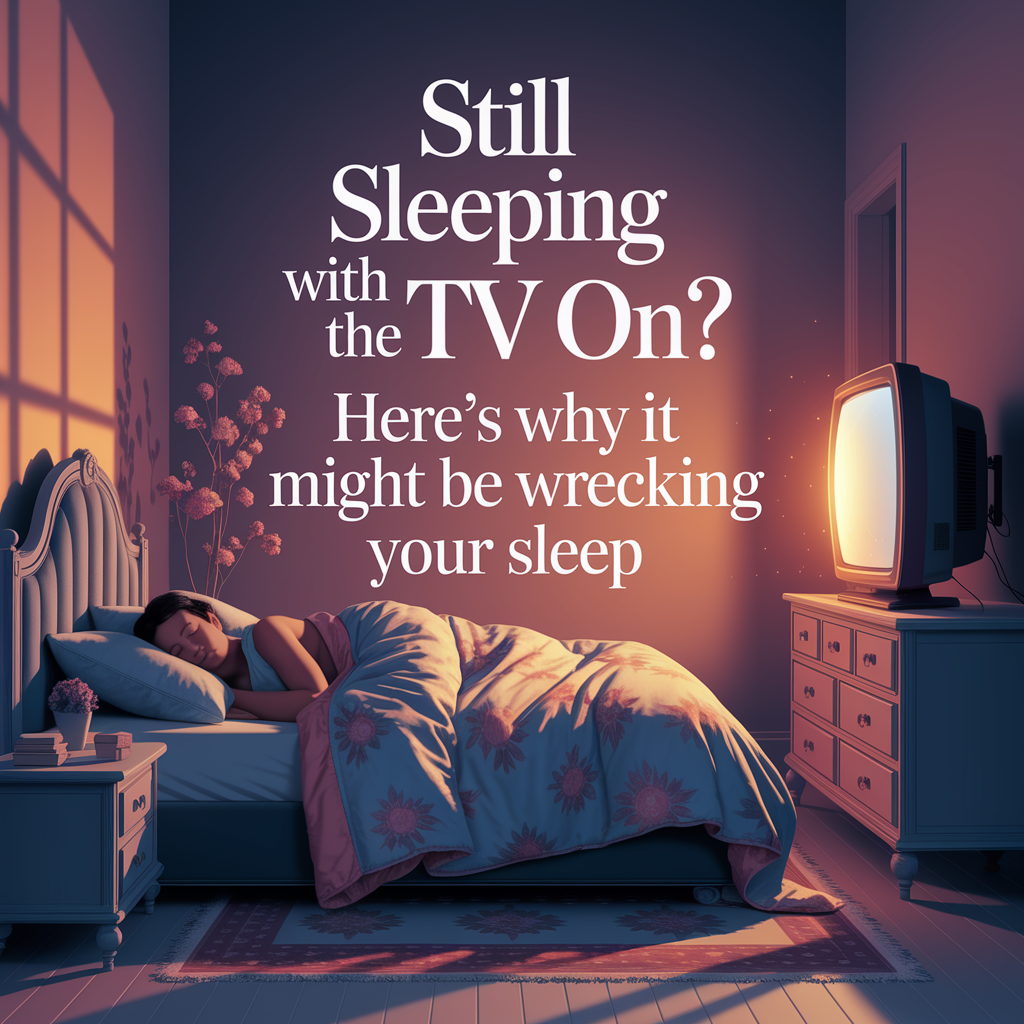
Is sleeping with the TV on really that bad?
I used to think sleeping with the TV on was harmless—maybe even helpful. I liked the background noise, the comfort of voices filling the room, and I honestly thought it distracted me enough to help me fall asleep faster. But over time, I started waking up groggy, restless, and more exhausted than when I went to bed. That’s when I started digging into what was really going on.
Turns out, sleeping with TV on can mess with your sleep more than you think.
Even if you do fall asleep while it’s on, your brain doesn’t fully shut down. It keeps processing the light and sounds in the background, pulling you out of deep, restorative sleep stages. I noticed I’d wake up more often, have strange, fragmented dreams, and feel like I hadn’t slept at all—especially after a night of sleeping through an entire Netflix autoplay session.
That’s when I made some changes—swapped out the TV for white noise, focused on building a calming nighttime routine, and started falling asleep faster and waking up way more refreshed. If you’re tossing and turning and don’t know why, this might be the reason. I wrote more about what actually worked for me here: Still tossing and turning? Here’s how I fall asleep fast now.
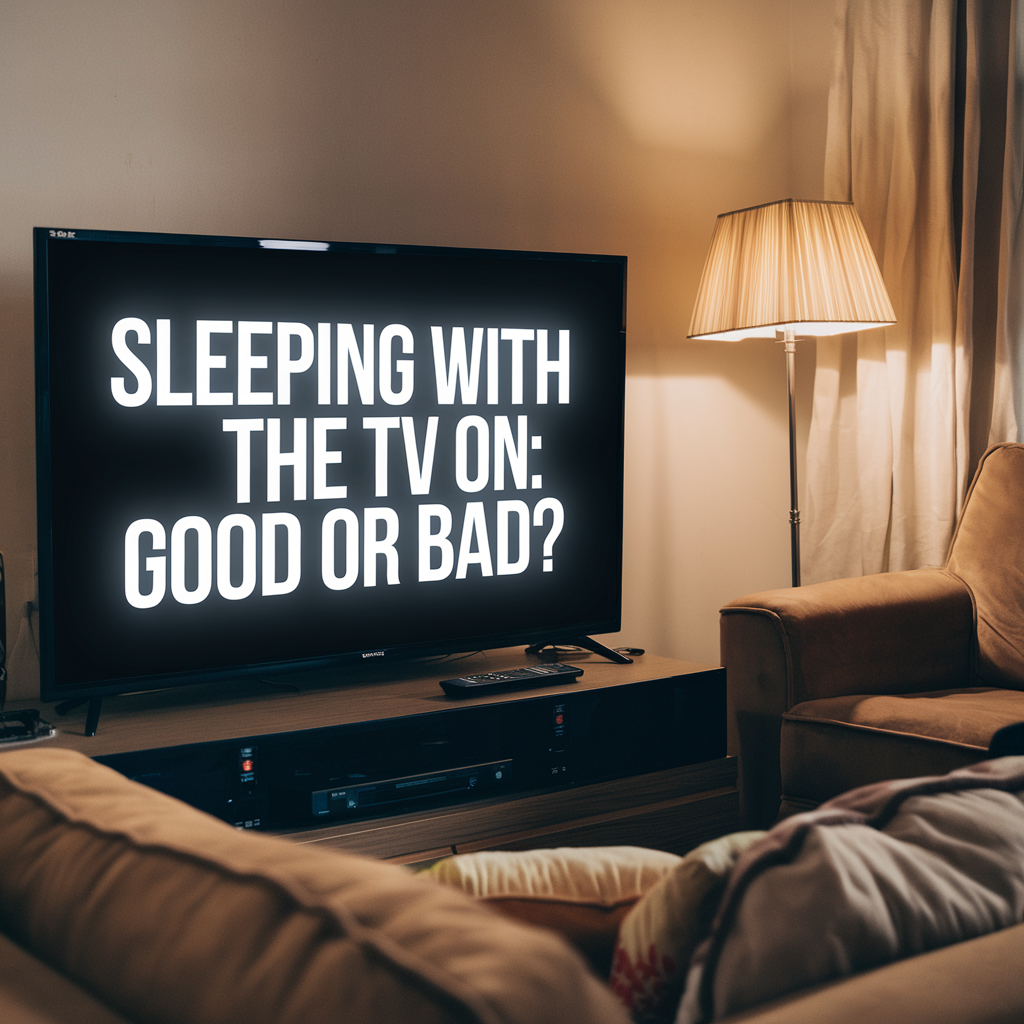
Why do so many people fall asleep with the TV on?
Because it feels safe, familiar, and honestly—kind of nice. For a long time, the soft hum of the TV made me feel less alone at night. If my mind was racing or I’d had a stressful day, flipping something on in the background helped me zone out just enough to relax. It became a crutch.
Here’s why a lot of people get into the habit of sleeping with TV on:
- It drowns out silence – Especially if you live alone or have anxiety, total silence can feel intense.
- It distracts a racing mind – Many of us use it to stop overthinking before bed.
- It’s comforting – Familiar shows and sounds can make the room feel less empty.
- It’s habitual – You do it once, it helps a little, and suddenly you’re doing it every night.

The problem? What feels like a comforting habit could be quietly wrecking your sleep quality. Even if you think you’re “used to it,” your brain isn’t. That constant stream of changing volume, bright flashes, and background noise prevents you from hitting the kind of deep sleep your body needs to recover.
Next, I’ll get into what’s actually happening in your brain when you fall asleep with the TV on—because it’s a lot more disruptive than it seems.
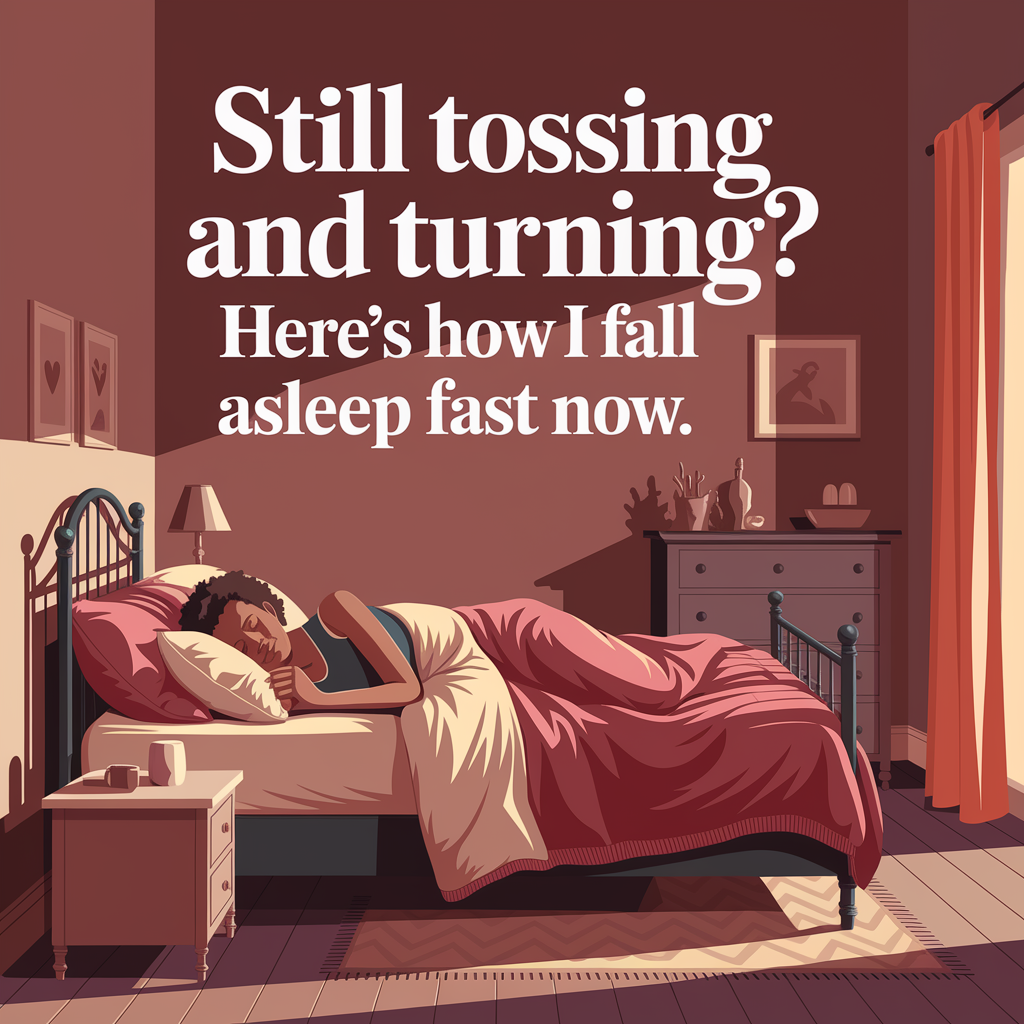
What happens to your sleep when the TV stays on?
When I finally started paying attention to how I felt after a night of sleeping with TV on, it all clicked. I wasn’t just waking up groggy for no reason—the constant light and noise were literally dragging my brain out of deep sleep all night long.
Here’s what’s happening under the hood when the TV stays on while you sleep:
1. You don’t reach deep sleep as easily
The brain needs darkness and quiet to reach those deeper stages of sleep—especially slow-wave sleep and REM. Background noise and flashing screens confuse your brain and keep you stuck in lighter sleep cycles.
2. Your melatonin production drops
Light from the TV—especially blue light—can suppress melatonin, the hormone that tells your body it’s time to sleep. Even with your eyes closed, your brain still senses that light and reacts to it.
3. You’re more likely to wake up throughout the night
Sudden changes in volume or bright scene shifts can cause micro-awakenings, even if you don’t remember them. Over time, those interruptions add up and leave you feeling unrested.
4. Your brain stays too active
While your body may appear relaxed, your brain is still processing speech, movement, and sound from the TV. That keeps it from fully detaching and resetting for the next day.
This was one of those habits I didn’t think twice about—until I connected the dots between poor sleep and my late-night Netflix habit. Once I started swapping it for things like blackout curtains, calming audio, and a cool room, things finally changed. I cover more of that routine here if you’re curious: Still tossing and turning? Here’s how I fall asleep fast now.
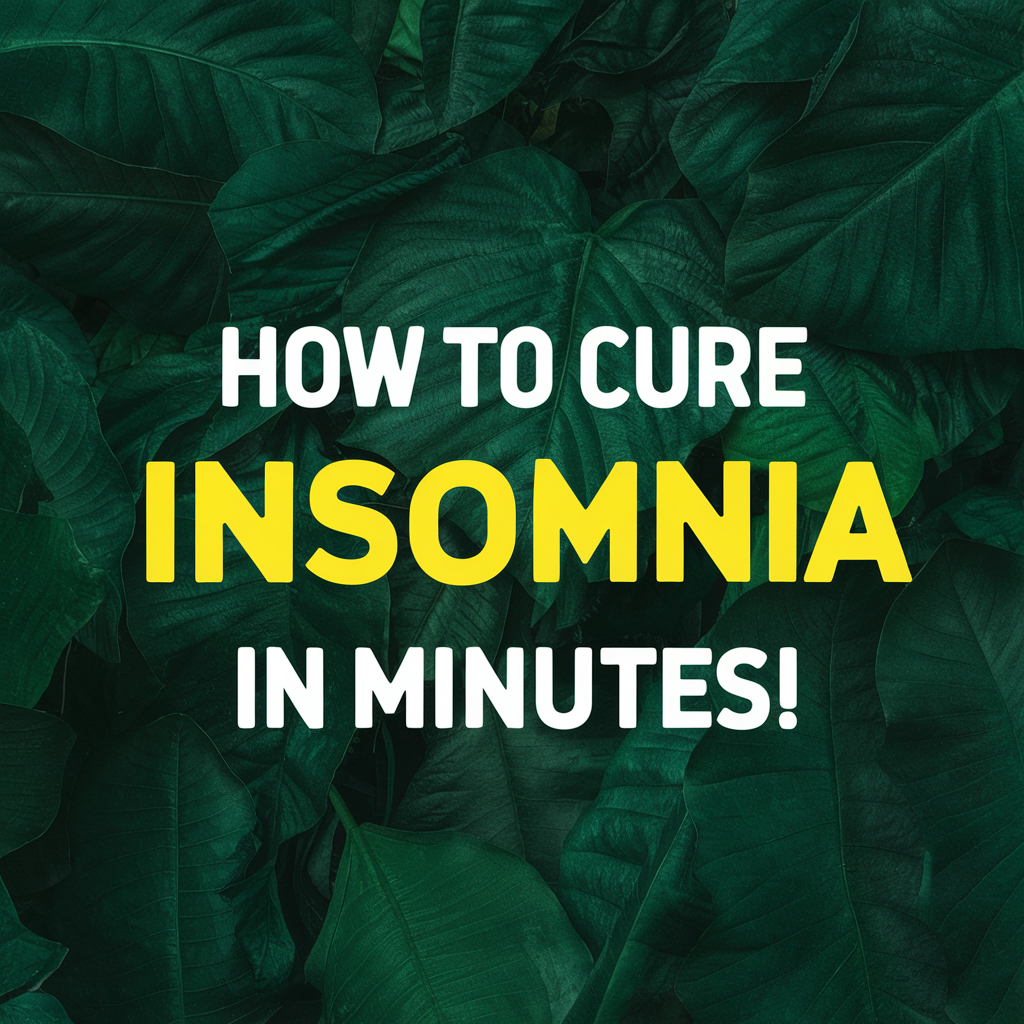
Does the light from the TV affect your brain at night?
Short answer? Yes—even if your eyes are closed. I didn’t want to believe it at first either, but once I started learning how the brain reacts to light at night, it all made sense. Your body is built to respond to natural rhythms of light and darkness. It’s part of your circadian rhythm—your internal clock that helps regulate sleep, alertness, and hormones.
Here’s how TV light specifically messes with that process:
- It mimics daylight, especially the blue light spectrum, which tricks your brain into thinking it’s still daytime.
- It suppresses melatonin, making it harder to fall asleep and stay asleep.
- It triggers alertness, keeping your brain in “watch mode” even as you drift off.
What shocked me was how much better I slept after eliminating all sources of light in my bedroom. I installed custom blackout curtains and ditched the TV completely at bedtime—and my brain finally stopped fighting me every night.
If falling asleep feels harder than it should, it might be less about your body and more about what your brain is sensing in your environment. Light is a powerful signal—and when it’s coming from your TV all night long, it’s sending the wrong message.
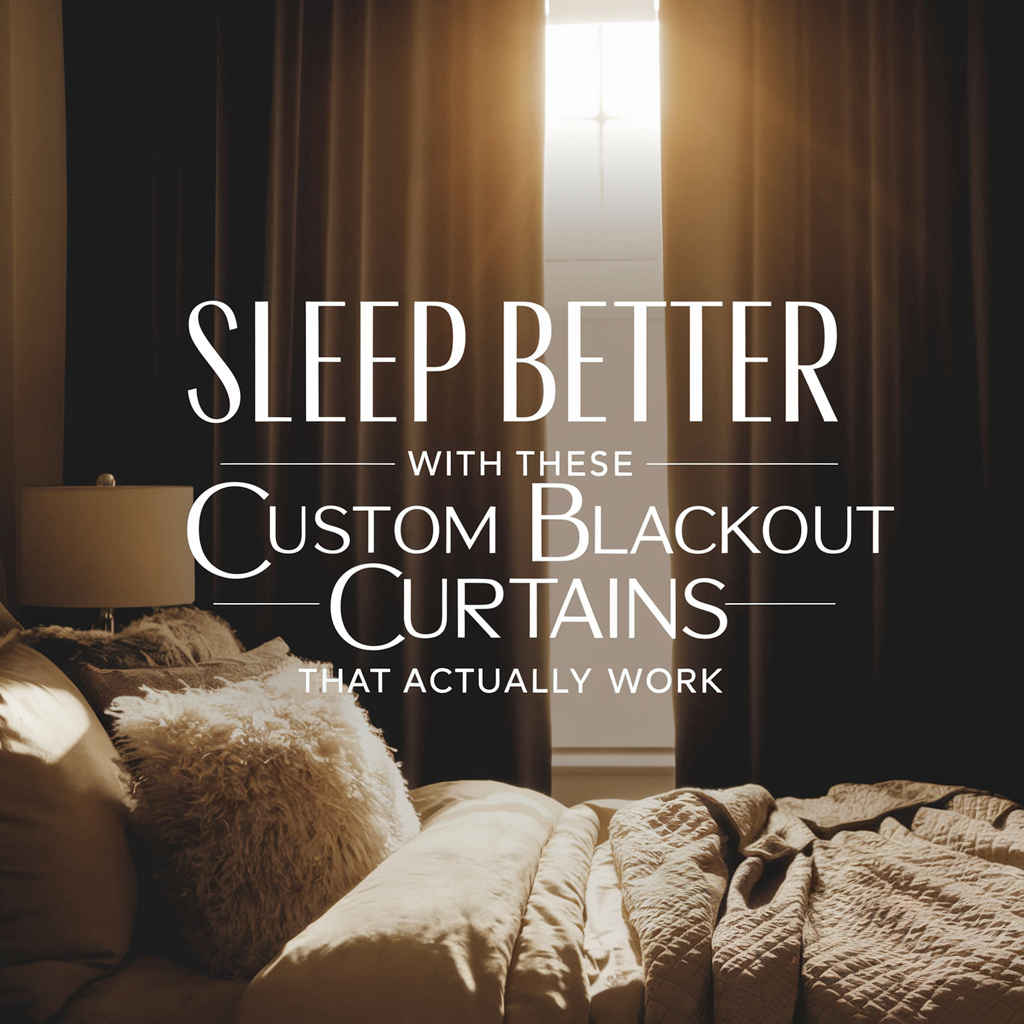
Why I stopped sleeping with the TV on (and what I do now)
I didn’t stop cold turkey—at first, I didn’t even want to. Sleeping with TV on felt like part of my routine. But once I realized how much it was messing with my rest, I knew I had to change something.
What finally pushed me over the edge was waking up after eight hours of “sleep” and still feeling drained. I’d spend half the day dragging, needing caffeine, and wondering why my mind felt foggy. That’s when I tried an experiment: one week without the TV at night.
Here’s what I did instead—and what actually helped:
1. Blackout my room completely
I got serious about removing light, and those glowing scenes from the TV had to go. I replaced my thin old curtains with custom blackout curtains that blocked streetlights, sunrise glare, and any ambient glow. It made a huge difference right away.
2. Replace TV noise with calm sound
I switched to a white noise machine. Sometimes I’ll even put on a quiet audiobook or soft instrumental music, set on a sleep timer. I still get the “background noise” comfort—but without the brain stimulation.
3. Stick to a wind-down routine
Now, I power down my screens an hour before bed, lower the thermostat to about 65°F, and do some light stretching or journaling. If you’re still dealing with late-night tossing and turning, this step-by-step routine might be just what you need.
After about three nights, I noticed I was falling asleep faster, staying asleep longer, and waking up without that foggy, sluggish feeling. My dreams were deeper, my energy was better, and the whole day felt easier to get through.
If you’re curious about the science behind this, I also dove deeper into it in this post on what TV at night does to your brain. Spoiler alert: it’s more than just “annoying background noise.”

Better alternatives to help you fall asleep
I get it—cutting out the TV feels uncomfortable at first. You’ve probably used it to unwind for years (I did too). But there are better options that don’t wreck your sleep, and once you give them a shot, they become even more comforting than falling asleep to another re-run of The Office.
Here are a few that worked well for me:
1. White noise or nature sounds
Helps block out random creaks, traffic, or a snoring partner—without the brain stimulation that comes from dialogue or flashing lights.
2. Audiobooks or sleep meditations
Soft narration is a great replacement for the TV. I use a timer so it shuts off after 20–30 minutes once I’m out.
3. A real bedtime routine
This one took some discipline, but now I look forward to it. Dimming the lights, turning on a fan, and slowly winding down with no screens made a massive difference.
4. Optimizing my room for sleep
I talk more about this in my full sleep hygiene guide, but the key is setting up your room to actually support rest—not fight against it.
If you’ve been relying on the TV to fall asleep, you’re not alone. But once you realize it’s been silently stealing your sleep, you might be ready to give something else a try. And when you do? You’ll wonder why you didn’t sooner.

How to break the habit of sleeping with the TV on
This was the toughest part for me—not because I loved TV so much, but because it had become part of my bedtime ritual. I’d turn it on without even thinking. It felt like background comfort, a way to “shut off” after a long day. But once I realized how sleeping with TV on was messing with my rest, I had to figure out how to break the habit without making bedtime feel miserable.
Here’s exactly how I did it—and how you can, too:
1. Start with a sleep timer
If you’re not ready to go cold turkey, set a timer so the TV shuts off after 30 or 60 minutes. That way, it’s not running all night and waking you up during REM sleep.
2. Replace the sound—not the comfort
I didn’t try to sleep in dead silence right away. Instead, I swapped the TV noise for something less stimulating—like white noise, rainfall sounds, or a chill audiobook. Over time, that “need” for the TV faded.
3. Cut screens earlier in the evening
I found that if I stopped watching TV a little earlier, I wasn’t as tempted to leave it on. I’d dim the lights, stretch, and read or journal before bed instead—way more relaxing and easier on the brain.
4. Make your room feel like a sleep space, not a lounge
I used to leave the TV remote on the bed and binge-watch until I crashed. Now, the remote lives across the room, the TV stays off, and the space feels like it’s meant for rest. Custom blackout curtains helped seal the deal—turning my bedroom into an actual sleep sanctuary.
5. Track how much better you sleep without it
This one made a huge difference. After just a few nights of falling asleep without the TV, I noticed I was waking up less, feeling more rested, and not needing that second cup of coffee to function. That progress kept me going.
If you’re not sure where to start or how to rework your bedtime rhythm, I wrote a full breakdown of what finally helped me fall asleep fast—it’s simple, doable, and no TV required.
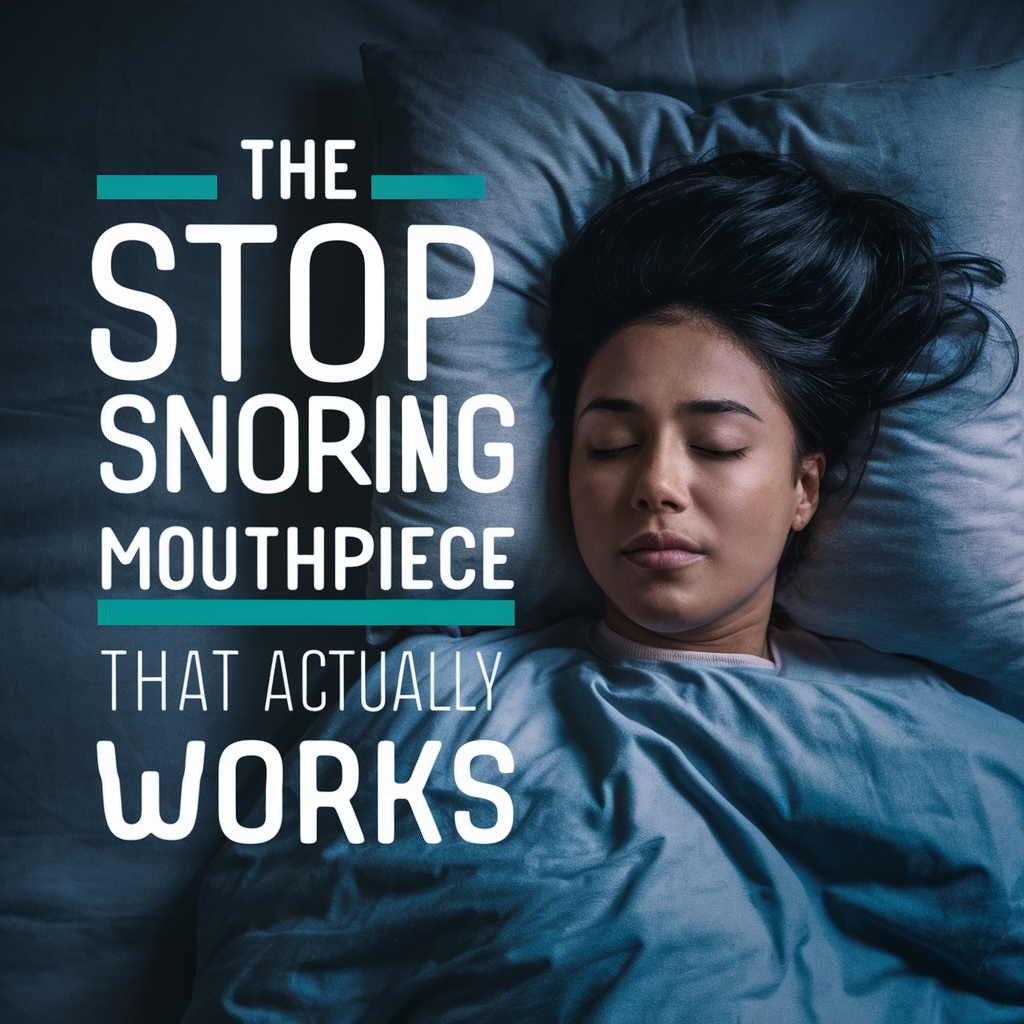
Sleeping with TV on might be ruining your sleep
I know it feels harmless—I thought the same thing for years. But if you’re waking up groggy, struggling to fall asleep, or feeling like your sleep just isn’t restful anymore, sleeping with TV on could be the hidden reason. It might not seem like a big deal, but over time, those light flashes, background voices, and disrupted sleep cycles wear you down.
Once I ditched the late-night shows, darkened my room with custom blackout curtains, and created a routine built around rest—not distraction—everything changed.
I fall asleep faster. I wake up fewer times in the night. And for once, I actually feel rested in the morning.
If you’re still unsure, start here: Is sleeping with the TV on good or bad for your brain?. The answer might surprise you—but it’ll also give you the push you need to finally start sleeping better.

As an Amazon Associate we earn from qualifying purchases through some links in our articles.
